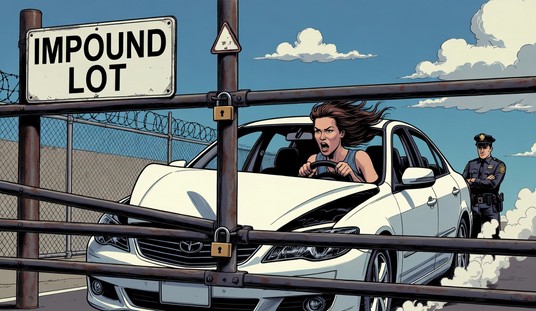Heading into Sunday’s Oscar telecast, one category considered a lock is Best Picture. Seven pictures might compete but only one (The Artist) continues to generate serious buzz. That’s a real shame, because the best film I saw this year, Martin Scorsese’s Hugo, received a nomination but seems unlikely to score anything beyond technical awards. And while mainstream audiences will find Hugo more accessible than The Artist, they have yet to realize it.
Perhaps we can forgive Academy voters for feeling there’s no reason to pay much attention to Hugo — aside from the double-fistful of nominations the film received. They’ve already handed Scorsese his lifetime achievement award via the Best Director honor he won for The Departed. So any recognition for Hugo comes as mere gravy for a director already lauded as a master. This thinking, however, refuses to judge Hugo on its own merits.
Based on the book The Invention of Hugo Cabret by Brian Selznick and set in Paris in 1931, Hugo starts with tragedy: the title character (Asa Butterfield) orphaned when his master clockmaker father dies in a museum fire.
This leaves Hugo to live within the walls and secret passages of the railway station Gare Montparnasse, setting the many clocks and stealing what parts he can to finish building an automaton he and his father began restoring.
Hugo begins as a Dickensian orphan but later emerges as a talented mechanical genius who shares his father’s love for the machines they build together. George Méliès (Ben Kingsley) starts out as a potential villain for Hugo, but develops into a man who lives his life hiding his past as a filmmaker. Hugo discovers a love of film and imparts it to Méliès’ granddaughter Isabelle; the two then show her father how much of an impact his early creations had.
In the relationship between Hugo and Méliès the film shines brighter than any of the others I’ve seen this year. Méliès first sees Hugo as nothing more than a thief, but by the time the credits roll the two develop a deep bond.
http://www.youtube.com/watch?v=hR-kP-olcpM
This is Scorsese’s love letter to film, and while the spectacular cinematography dazzles, the characters best allow us to fully experience this unique world.
Scorsese brings more to the table than one would expect even from his varied filmography. Working with Robert Richardson and Thelma Schoonmaker, his cinematographer and film-editor of choice, the director takes the opportunity to show off his deep appreciation of the craft. This is a film lovingly translated from the page to screen, and even the multi-dimensional flourishes designed to give 3D a push into the art-house realm don’t distract from the story he’s trying to tell.
I’ve heard a great deal about Hollywood’s embrace of The Artist, which re-introduces the silent film genre to modern audiences. That discussion ignores Scorsese’s loving homage to the works of the real-life George Méliès, whose early films Hugo recreates in glorious technicolor detail. When World War I forced him to choose between his filmed fantasies and the reality of life, he made his choice to sell his films. But in the process, losing his realm of artistic expression left him less than whole. No wonder Hugo and Isabelle would fall for these short vignettes, and even more-so why Méliès and his wife would dedicate their lives to making the films.
http://www.youtube.com/watch?v=QOXYHOrhMgk
Thus, Hugo makes the best case for film preservation. Many of the Méliès’s works from barely a century ago remain lost to modern viewers.
Scorsese has built his place in the history of American film. If Hugo can’t receive its due now, perhaps decades from now audiences will regard the picture as a breakthrough in modern family cinema. If we don’t preserve our movies now, future generations won’t have the chance to decide for themselves these films’ historic importance.
Modern day Best Picture winners frequently disappear in all the fanfare, rarely remembered with much kindness as time passes. Though the film stands leagues above the competition, perhaps the best thing that could happen here would be for Hugo to let Oscar pass it by and allow an audience to coalesce around it once current hype recedes.
See also: Chris Queen’s Oscar’s Only Human: The 10 Biggest Academy Awards Blunders










Join the conversation as a VIP Member